After Italy capitulated in September 1943, Bela krajina became a free territory. Until the end of the war it witnessed a few more individual raids launched by Germans and the Ustasha. The Ustasha and the Germans raided Metlika, Vinica and Adlešiči, while the Germans bombed Črnomelj and Dragatuš.
The publication Metlika v plamenih (Metlika in Flames) states that in July 1944 the Germans and their vassals in Metlika burnt down 33 residential buildings and 141 outbuildings (barns, stables, pigsties, sheds, hayracks, cellars and vineyard cottages). As the buildings burnt down, 40 families lost everything. Metlika v plameni, 26.
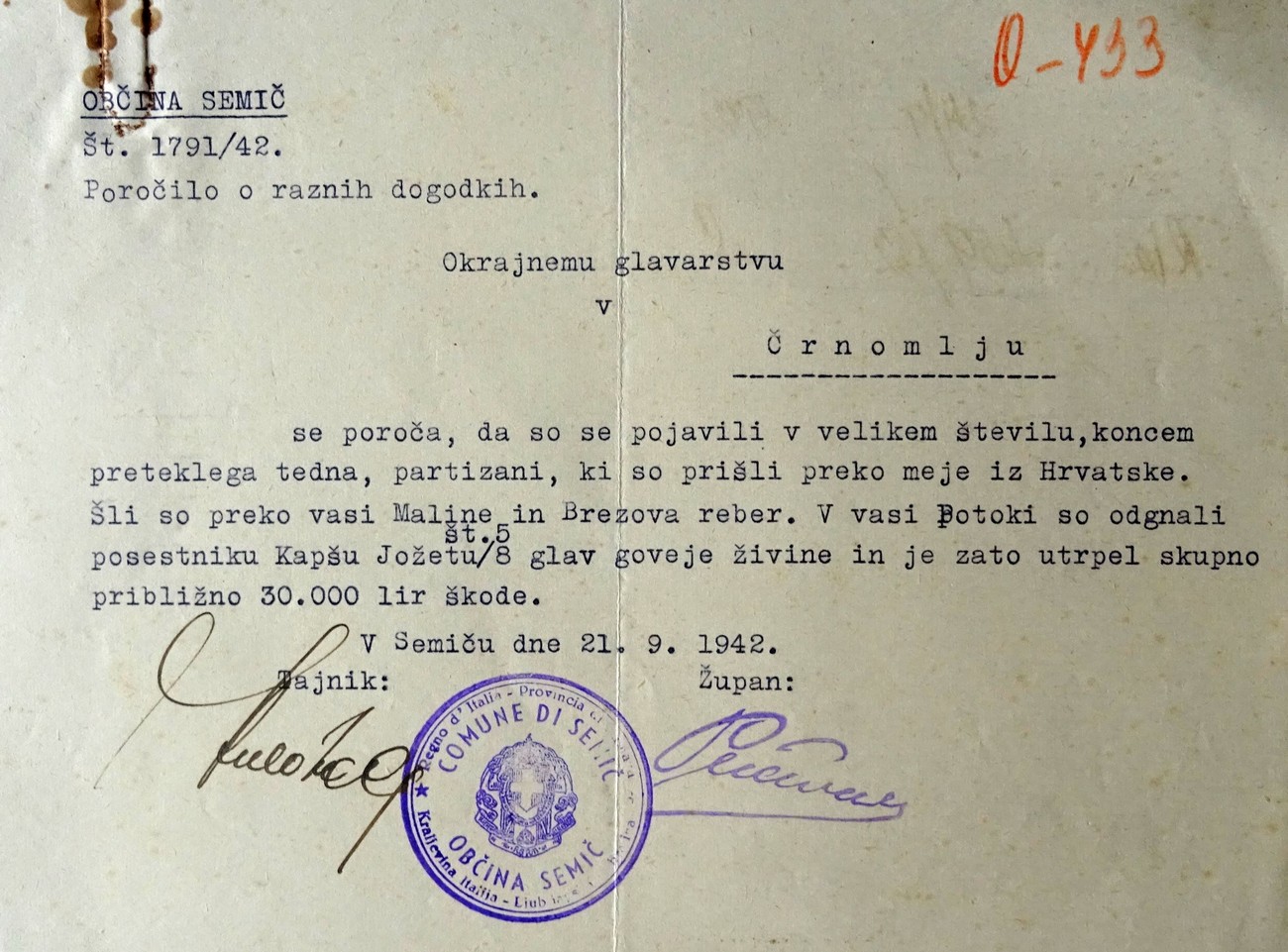
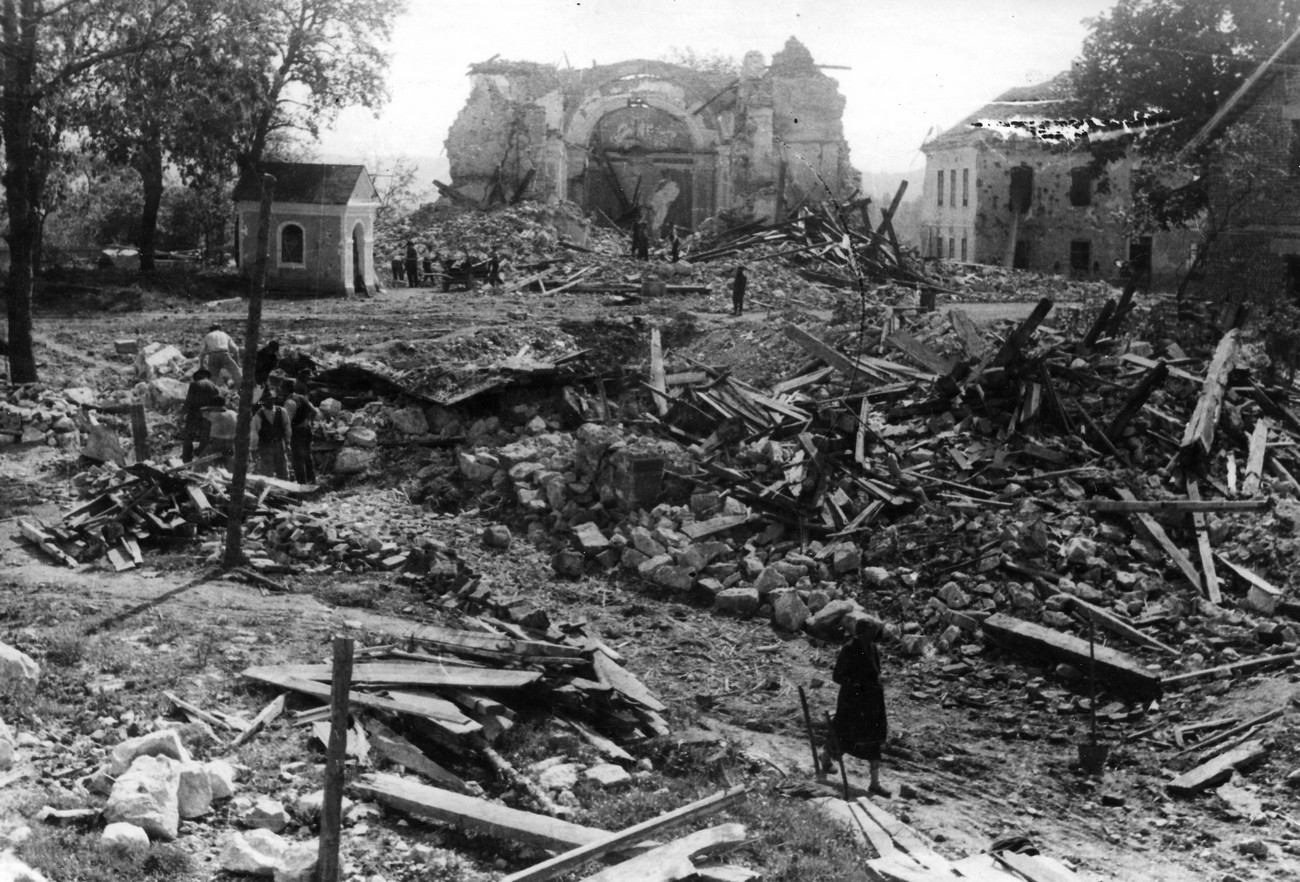
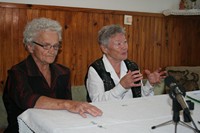
On 21 March 1945, the Ustasha and the Germans invaded near Pobrežje across the border Kolpa River and burnt down Adlešiči.
Don’t get me started on what the Ustasha did in our village. They caused great damage. They burnt down Adlešiči, all the houses … my mother had just spread noodles across the table to dry. A paraffin lamp was hanging above the table. He hit the paraffin lamp with a stick, so the paraffin spilt all over the noodles on the table. And we started crying: ‘Mummy, what are we going to eat?’(Author: Sonja Bezenšek.)
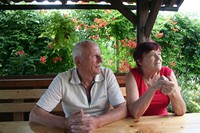
Listen, I experienced the war deeply. We were living in Sošice. If the Ustasha came to Sošice, my father was a partisan, we fled over the hills to Jugorje, because that's where my father was from. If the White Guard, the Italians, were there, we ran back.(Author: Božidar Flajšman.)
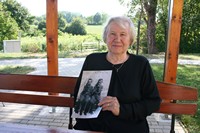
Fearing that Bela krajina would turn into a battlefield as the occupying armies were retreating from the Balkans, they carried out a voluntary evacuation of the population of the eastern Dolenjska region, especially of Bela krajina, in late March 1944. Over 2000 people – children, mothers, the ill and the elderly – were taken by cargo planes from the airport in Krasinec to Dalmatia and Italy, where they awaited the end of the war. One of them was Terezija (Zinka) Selakovič from Drage near Metlika, who was taken to Bari. This is how she remembers it:
The British took care of us. We were under their patronage /…/ from 1944 to 1945. When the war ended on 9 May, we came home.Author: Božidar Flajšman.
She is holding a photograph taken in Bari. It shows her brothers Ivan and Martin.
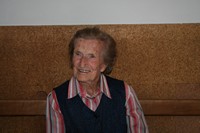
We had a field near Dragatuš and were planting maize there, when the planes started flying above us; they were dive bombers. They came from Črnomelj; they were flying and started bombarding. We were so afraid, we didn't know what to do. I grabbed the little one, pressed him under my arm. I held him down. There was tall rye in the adjoining field, so we lay down on the ground there, pressing down on the ground. The little one dug his nose into the soil and fell asleep. Oxen came rushing past from the other side. They'd been ploughing far away in another field. The plough was still attached to them and they dragged it along with them, right past us. They were on a rampage. It was terrible. I can't tell you just how terrible it was. Dragatuš was demolished. They tried to hit the railway station; they circled Dragatuš five times, but they couldn't hit the darn thing. They couldn't hit the mark.(Author: Sonja Bezenšek.)